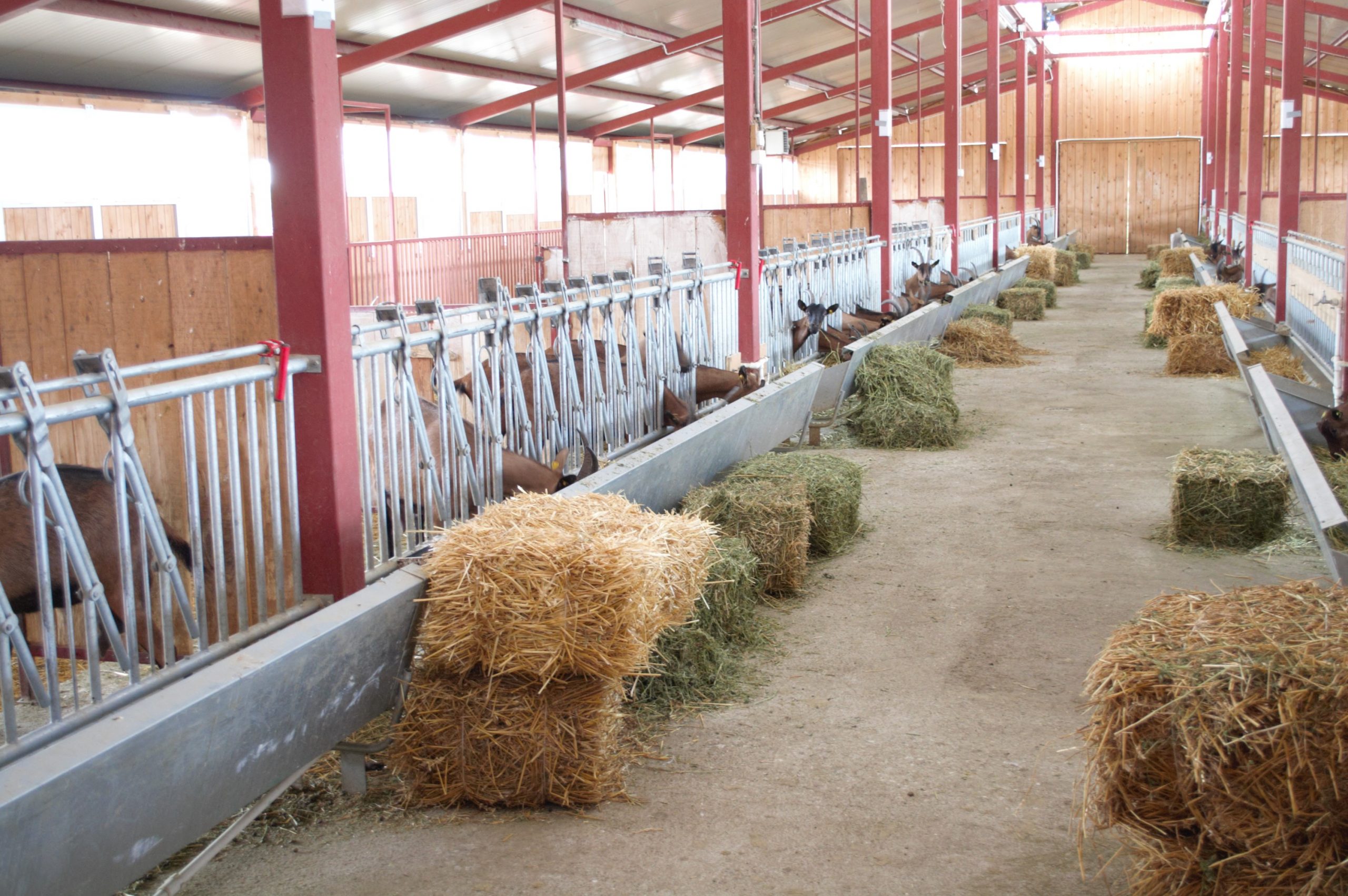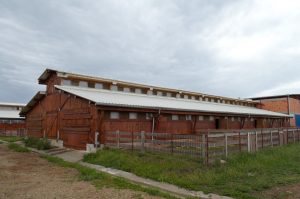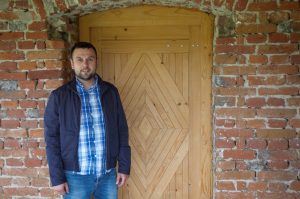Case study 05-RS
Goran Đukić
Introduction
Rural entrepreneur Goran Đukić, being morally and financially supported by his two families, started his business in 2015 on estate of 7.5 ha in the plains of Serbian Banat just by Romanian border. He and his wife with almost 20 employees breed goats for milk and sheeps for meat. Every day, about 700 l of goat’s milk is processed in their dairy plant into high quality products – milk, soft cheeses, grill cheese, kefir, and yoghurt. To support milk production, they rented additional 50 ha of land in 2019 and started to produce animal feed and medicinal herbs. At about the same time, they started selling goat’s genetic material as well as making sausages from goat’s meat. Moreover, they implemented the technology to produce traditional product – kefir made from goat’s milk.

Farm/Enterprise description
The farm is located in Eastern part of Vojvodina province in Serbia. The estate is about 7.5 ha, although the owner rents additional 50 ha for the crop production, mostly wheat, sunflower, clover, and medicinal herbs. They own about 230 milking goats that are reproduced on the farm, and they decided not to buy new ones because of disease control in the herd. The farm has a dairy processing plant, where about 700 l of goat’s milk is processed into pasteurized milk, soft cheeses, grill cheese, kefir, and yoghurt. The farm and dairy processing unit employs about 20 full-time workers (including 2 family members), as well as 10 seasonal workers during summer months. They are also selling the products on-farm and planning to open a restaurant and cheese-making workshop in near future. In 2019, they started innovative activities of producing traditional product of kefir that is made from goat’s milk.
“For successful farm production and processing, in addition to successful production of milk and dairy products, it is necessary to strive for a complete system of production: production of breeding material, offspring, feed, meat from animals that are no longer used for milk production – in other words to exploit the maximum from such work.”


Multifunctional farming activities related to dairy processing / Innovation related to products and/or processing
The owner’s motivation to produce kefir made form goat’s milk arose after market monitoring that showed that there was a demand for quality traditional goat milk products in Serbia. To them, this seemed like an excellent opportunity to broaden the assortment and increase the income. In 2019, they implemented the technological process of the kefir production, but also faced several challenges. Beside kefir production, they developed the technology of grilled cheese production and the production of traditional yoghurt-like product in Balkans called “kiselo mleko”, both made from goat’s milk. The production of wheat, sunflower, clover, and medicinal herbs also contributes to the income of this rural enterprise. The crops are used for goat’s nutrition, while medicinal herbs are sold to the local company that extracts the essential oils. In their opinion the production of exclusively dairy products from goat’s milk is not sufficiently financially viable, and they believe that it is necessary, as much as possible, to complete the circle of production on farm.
General considerations
During the implementation of kefir production, the main challenges were related to the hygiene and disinfection procedures of the processing unit. The funding for this activity was provided by the Provincial secretariat of agriculture through co-financing the procurement of the equipment. However, since they use the same unit for the production of other products, and unlike other products for kefir production yeasts are used, they experienced the problems of increased microbials count in the product after kefir was produced. After counselling with university professors from the University of Novi Sad, Faculty of Agriculture, and other experts, they implemented different cleaning techniques of the unit after kefir production, as well as organizing the production of kefir once a week. Other challenges were related to animal breeding and animal heath, which were addressed through counseling with the experts. So far, the disease management remains to be the problem, because it can be addressed almost solely by prevention. In addition, they passed different trainings and seminars regarding cheese technology, animal breeding and nutrition, and HACCP implementation. To reach the consumers, they have advertising campaigns, mainly related to advertising through social networks. Distribution is not done through large retail chains, but through sales in small family markets, their own shops, and at the open markets. Their future activities are focused on the export of products due to higher prices, as well as the development of tourist facilities on the farm (restaurant).


Training/Competences (Skills, Knowledge, Attitudes) especially relevant for the process
Each business segment on the enterprise is covered by training, but it is also necessary to constantly be in touch with new trends and improve processes. Moreover, training in kefir production, processing unit sanitation, and animal health prevention, were critical for implementing the innovation activities. In terms of one’s competences, the owner takes that firstly, good personal qualities are necessary and then the skills and the knowledge that are learned during work (i.e. knowledge of milk processing technology, basic principles of good farm management, but also marketing and business).
Photo gallery








